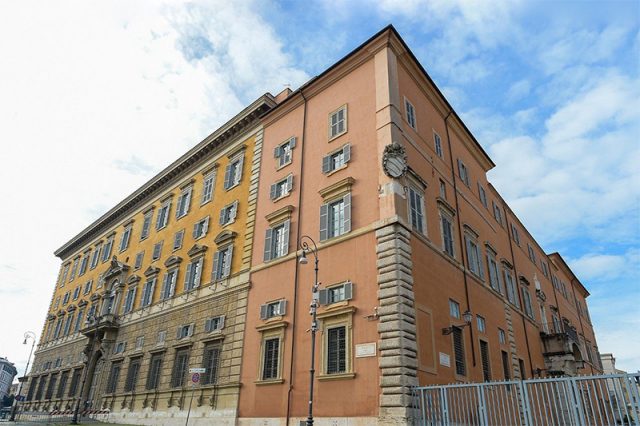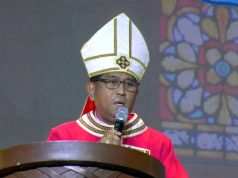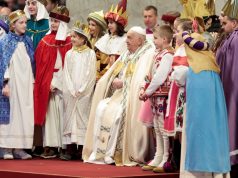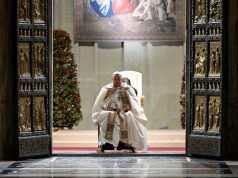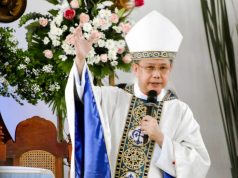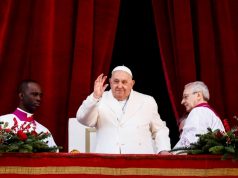The Vatican Dicastery for the Doctrine of the Faith (DDF) released a note on Saturday on discerning the validity of the sacraments.
The new document signed by Pope Francis and DDF Prefect Cardinal Victor Fernández is titled “Gestis Verbisque,” or “Deeds and Words.”
Fernández wrote in his introduction to the text that the note on the sacraments was written “to help bishops in their task as promoters and custodians of the liturgical life of the particular Churches entrusted to them.”
“The Dicastery for the Doctrine of the Faith intends to offer in this note some elements of a doctrinal nature with regard to discernment on the validity of the celebration of the sacraments, paying attention also to some disciplinary and pastoral implications,” he wrote.
The 11-page text published only in Italian on Feb. 3 reiterates that for all sacraments in the Catholic Church, the “observance of both matter and form has always been required for the validity of the celebration.”
“Both matter and form, summarized in the Code of Canon Law, are established in the liturgical books promulgated by the competent authority, which must therefore be faithfully observed, without ‘adding, removing, or changing anything,’” it says.
The document adds that arbitrary changes to either matter or form “jeopardize the effective bestowal of sacramental grace, to the obvious detriment of the faithful” and that the “severity and invalidating force” of such changes “must be ascertained on a case-by-case basis.”
“Gestis Verbisque” frequently refers to the dicastery’s 2020 doctrinal note on the modification of the sacramental formula of baptism, which clarified that changing the words to the baptismal formula to “we baptize you” invalidated the baptism, requiring anyone who had been baptized with this formula to be considered as not yet having received the sacrament.
Fernández writes that in 2022 cardinals and bishops taking part in the DDF’s January plenary assembly had already expressed concern about “the multiplication of situations in which they were forced to note the invalidity of the sacraments celebrated.”
Specific examples, listed by the cardinal, include using “I baptize you in the name of the Creator …” or “In the name of your father and mother … we baptize you,” instead of the established baptismal formula.
“While in other areas of the Church’s pastoral action there is ample room for creativity, such inventiveness in the context of the celebration of the sacraments turns rather into a ‘manipulative will’ and therefore cannot be invoked,” the cardinal prefect said.
“We ministers are therefore required to have the strength to overcome the temptation to feel like owners of the Church,” Fernández added.
The cardinal later commented that when the priest acts “in persona Christi capitis,” it does not mean that the priest is “the boss” with the ability to exercise arbitrary power, but that Christ alone is “‘the head of the body, the Church,’” citing Colossians 1:18.
“It seems increasingly urgent to mature an art of celebrating that, keeping at a distance as much from rigid rubricism as from unbridled imagination, leads to a discipline to be respected, precisely in order to be authentic disciples,” Fernández said.
Pope Francis approved the text of the DDF note during a private audience with Fernández on Jan. 31 after the note was discussed and unanimously approved by the cardinals and bishops who attended the dicastery’s recent January plenary assembly.
Fernández and Monsignor Armando Matteo, the secretary for the dicastery’s doctrinal section, signed the note on Feb. 2, the feast of the Presentation of the Lord.
“Precisely by constituting the Church as his mystical body, Christ makes believers partakers of his own life, uniting them to his death and resurrection in a real and mysterious way through the sacraments,” the note says.
“Indeed, the sanctifying power of the Holy Spirit acts in the faithful through sacramental signs, making them living stones of a spiritual edifice, founded on the cornerstone that is Christ the Lord, and constituting them as a priestly people, partakers of the one priesthood of Christ.”

